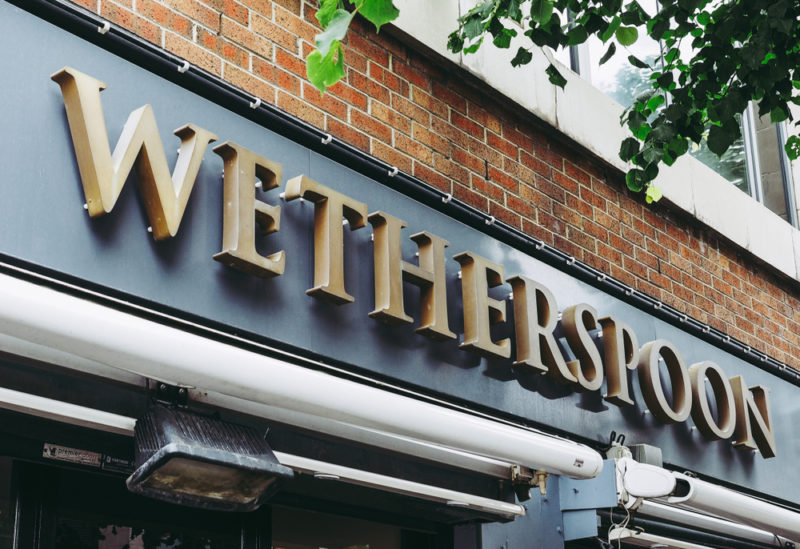Please don’t go to Wetherspoon’s. “The Silver Penny” on Abbey St has been open for around three months now, and it was one of the most mournful sights I was met with upon my return to Dublin. I knew about the 98-room hotel set to open on Camden St, I knew about the ring of suburban Spoons in Dún Laoghaire, Blackrock, Blanchardstown and Swords. But not this, not the city centre. Like an enclosing infestation of Japanese knotweed, the English pub chain is slowly growing its roots deep in the centre of Dublin.
The large bar, which has housed a bank and chapel in the brighter parts of its history, domineers the historic city centre street. WETHERSPOON is marked out in charmless gold lettering over the door of the old chapel. The experience of walking inside brings up the anthropologist Marc Augé’s theory of the “non-place”: the tables packed with people drinking belie the ghostly transience of the complex.
The space is transitory – we could be in Leeds or London, Glasgow or Carlow. This is perhaps why Wetherspoon is always so keen to masquerade as having paid attention to the locale. A name is selected that makes some sort of reference to the area, some artefacts are placed on the wall and the veil is complete. Except Wetherspoon operates over 900 bars across the UK and Ireland, and they are, to all extents and purposes, identical. They inhabit a vast range of different spaces: historic buildings restored and decked with an individual carpet and a special name. But the soul of all of them is one and the same. It is the soul of Walmart and Starbucks, and everything revolves around the price.
Dublin’s pub culture is central to the city, and few worry about its resilience. It’s hard to imagine Dubliners turning their backs on the beloved institution of the independent pub.
But sometimes the tyranny of price is irresistible, and with the economies of scale that come from supplying over 900 bars, Wetherspoon will always win. These bars thrive in a recession, when budgets are tighter and people care less about those fleeting adjectives “culture” and “history”. If they spread out enough, it is not impossible to see real pubs losing out from the scourge of Wetherspoons, not just the home-grown “fake pubs” of Temple Bar and Camden St. Culture is fragile, habits are fickle, and a pint for less than €3.80 will always be tempting.
Dublin’s clubbing scene is under threat, but with 3am closing times it has never been the main attraction. Its pubs are the best in the world, for the possibility of striking up a conversation with anyone, the bustle at a bar and the rushed care of an experienced publican. The simple beauty of a fridge cabinet stacked with toasties. Compare that with a cheerless hall-full pub full of people ordering on their phones, a model of automated efficiency. Suddenly the price of a cheap pint seems very high indeed.







